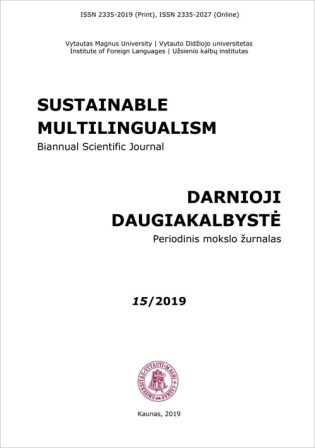A comparative study of the gap between de-jure and de-facto language policies: the case of Kyrgyzstan and Hungary
A comparative study of the gap between de-jure and de-facto language policies: the case of Kyrgyzstan and Hungary
Author(s): Askar MambetalievSubject(s): Language studies, Law, Constitution, Jurisprudence, Applied Linguistics, Comparative Linguistics
Published by: Vytauto Didžiojo Universitetas
Keywords: Language policies; ideologies; beliefs; document analysis; linguistic landscape;
Summary/Abstract: The purpose of this study was to find the main factors that guide language policies and discover correlations between top-down and bottom-up ideologies in the context of Hungary and Kyrgyzstan. To accomplish this, the study created a database of relevant official documents, photos of linguistic landscapes and qualitative data. The study analyzed the documented top-down decisions from historical perspectives, and then compared them with the data collected from interviews and surveys, and from the collection of photos. The participants included both high-ranking political figures, professors, students and random citizens. Results showed that the official policies often do not comprehensively match with the people’s beliefs, attitudes and desires. Findings also imply that using either document analysis, or the method of linguistic landscape, or qualitative methods alone, might not sufficiently validate the results in the absence of each other, since errors may top up from various discrepancies between top-down and bottom-up arrangements, as well as from overt and covert ideologies.
Journal: Darnioji daugiakalbystė
- Issue Year: 2019
- Issue No: 15
- Page Range: 48-69
- Page Count: 22
- Language: English

